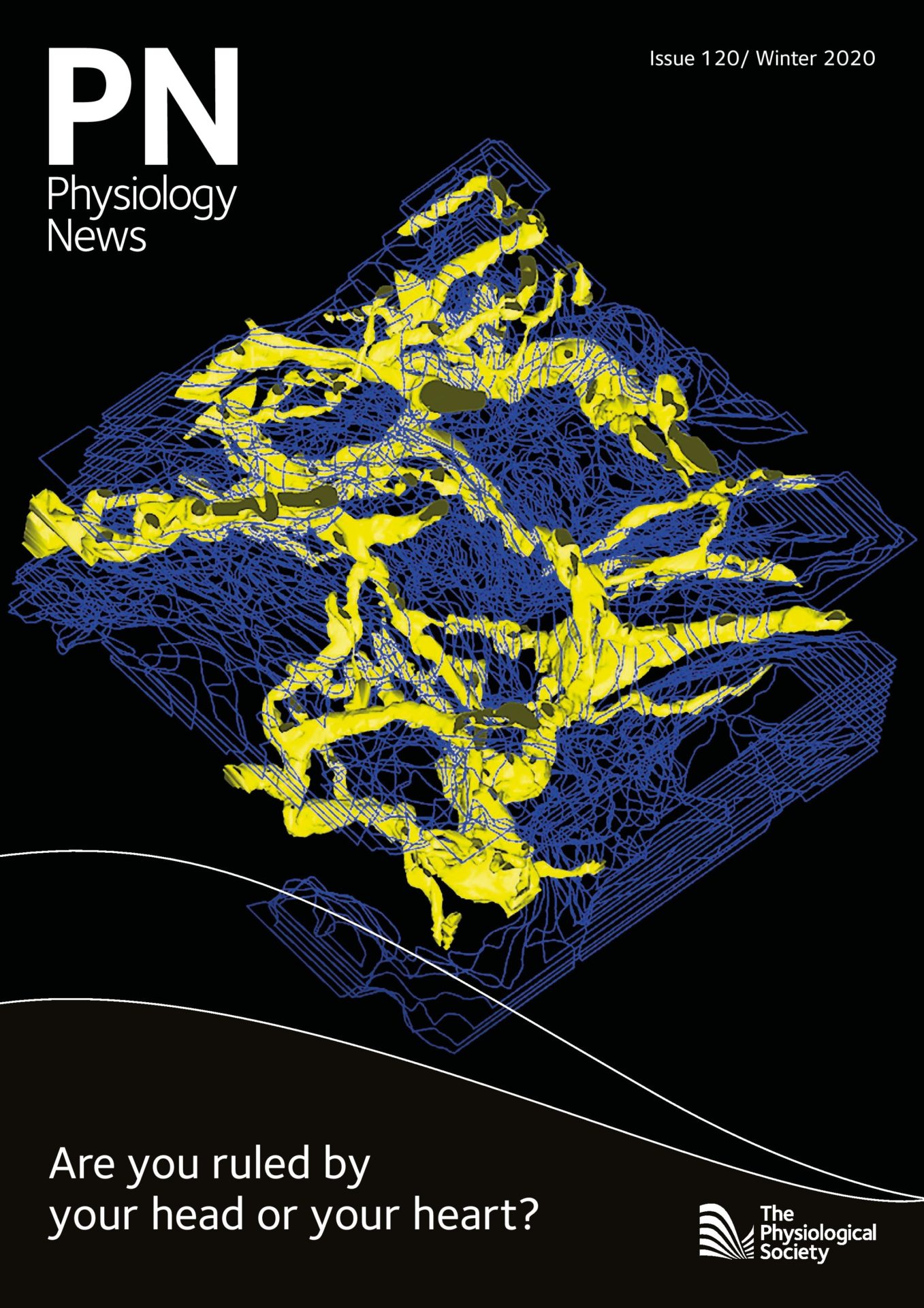
Physiology News Magazine
R Jean Banister Prize Lecture: Mind Affects Matter
Brainstem Circuits Linking Stress, Physiology, and Behaviour
Events
R Jean Banister Prize Lecture: Mind Affects Matter
Brainstem Circuits Linking Stress, Physiology, and Behaviour
Events
Marie Holt, Florida State University, US
https://doi.org/10.36866/pn.120.17
It is an amazing honour to be chosen as the 2019 R Jean Banister Prize Lecture recipient. The previous awardees are incredible early career researchers and come from a strikingly wide range of scientific backgrounds, a testament to the broad spectrum of physiology supported and celebrated by The Society. On top of that, I am sure it would not have escaped R Jean Banister’s notice – she was a staunch champion of women’s education – that the previous recipients of this prize have all been women.
When I was 17, I did a project for school on the God Helmet – a device that purportedly elicits mystical experiences through stimulating the brain with a weak magnetic field. While the scientific validity of those studies may be questionable, my new-found passion for neuroscience was not! A decade later, I completed my PhD in Neuroscience from University College London (UCL) under the guidance of Stefan Trapp. My research at UCL revealed how a group of neurons in the brainstem, the
GLP-1 neurons, control food consumption under certain physiological conditions, including stress. This was ground-breaking work and started my interest in exploring how physiology affects behaviour and vice versa.
Over 500 million people in the world live with anxiety or depression, a number which has increased dramatically during the COVID-19 pandemic. These disorders are triggered and exacerbated by continuous stress and carry with them a swarm of comorbidities. In spite of this huge societal burden, we have few effective therapies and a very limited understanding of the brain circuits involved.
At its core, stress is of course beneficial: it prepares the body for potential threats and ensures rapid return to ‘normal’ physiology. However, repeated and unrelenting stress can induce an anxiety state, characterised by behavioural inhibition, vigilance, and sympathetic arousal.
In the R Jean Banister Prize Lecture, I argue that these stress-related behavioural and physiological changes are driven by GLP-1 neurons in the lower brainstem. I present evidence that GLP-1 neurons have the ability to suppress appetite, but mainly in response to stress.
I also share our recent findings that GLP-1 neurons mediate anxiogenic effects of stressful stimuli and have the ability to increase heart rate, most likely by increasing the activity of the sympathetic nervous system. These effects – behavioural inhibition and sympathetic arousal – are the hallmarks of anxiety, supporting the idea that GLP-1 neurons play a crucial role in orchestrating the brain’s responses to stress. It is my hope that my findings, by contributing to our understanding of brain responses to stress, will ultimately help the millions of people world-wide living with anxiety disorders and their comorbidities.
I am indebted to The Society for giving me the opportunity to share these findings with a broad audience and I am determined to pay it forward through research, mentorship, and service. I read somewhere that Daphne Park, who knew Jean Banister well, said of her at her retirement ceremony, “She has absolute integrity and she is a perfectionist; she is also an optimist.”
As a scientist, these are truly characteristics to live up to and it is my hope that someone will say the same about me at my retirement party. Until then, I will continue to conduct research with the hope that my contribution will help us understand the brain just a little better.
